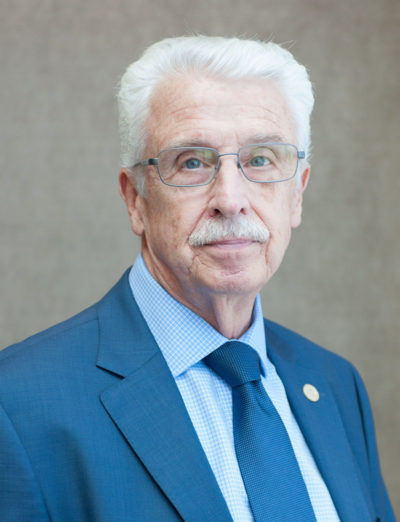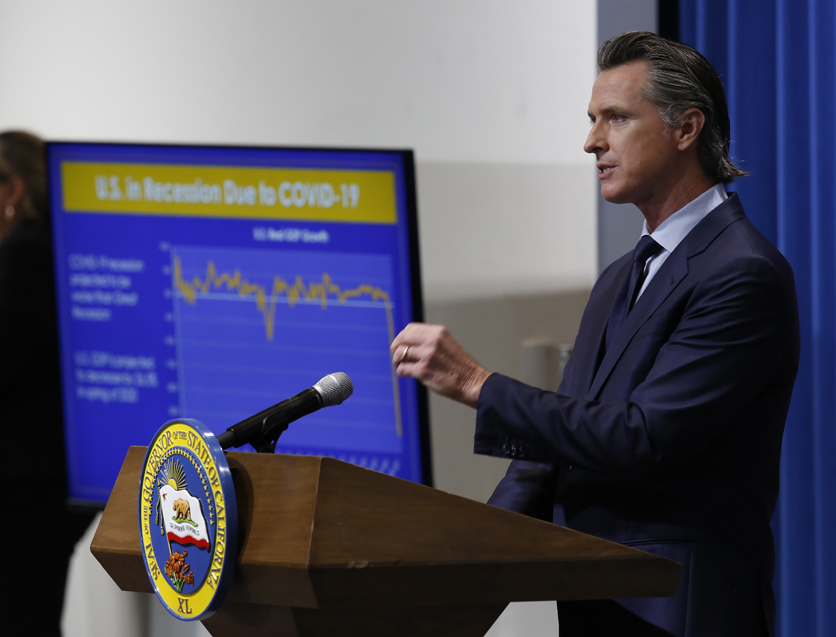As the budget process plays out this week in the Legislature, state employees have been caught in the middle. The governor has imposed a hiring freeze on all agencies while also proposing a 10% cut to salaries for the budget year starting on July 1. In announcing a budget agreement on Thursday, the Legislature pushed back on those pay cuts.
The negotiations have progressed at a rapid pace, through weekend committee hearings and countless hours of closed-door discussions. While proposals for large cuts in other sectors have been dominated much of the discussion, ag groups have taken notice of an effort by the State Water Resources Control Board to create dozens of new positions to cover new initiatives like safe drinking water and the governor’s Water Resilience Portfolio.
One of those proposals would charge farmers $1.3 million in additional waste discharge fees in order to cover eight new positions. The staff scientists would play a part in the Water Portfolio’s effort to inventory and assess water quality issues across the state by preparing assessments for “California’s rivers, lakes, beaches and other surface waters.” The positions would also satisfy requirements for the Clean Water Act and a court order requiring the state to produce the assessments more quickly.
Another proposal would create six additional positions to directly support other Water Portfolio efforts, at a cost of another $1.3 million added onto waste discharge and pollution permits.
Raising permit fees to fund new positions sounded a familiar alarm in the ag community. Lauren Noland-Hajik, a policy advocate representing agricultural associations for the firm Kahn, Soares and Conway, pointed to the cumulative impact of these fees on an industry already in decline.
Agriculture is dealing with reduced surface water allocations from a dry winter, regulatory uncertainty due to multiple state and federal lawsuits, and the potential for the Sustainable Groundwater Management Act to fallow up to one million acres of land in the San Joaquin Valley.
“With all of these changes – and with drought, with cutbacks in water supply – we don't think it's appropriate for the State Water Resources Control Board to increase permit fees on an industry that may be shrinking,” said Noland-Hajik during recent budget hearings. “Agriculture, as other industries, has been impacted significantly by COVID-19 and is going to take some time to recover and really can't have an increase on their permit fees.”
Agricultural groups clarified that they do support the draft Water Resilience Portfolio and its proposed policies.
“We are just opposed to the way they propose to fund these programs by raising fees on us,” said Gail Delihant, the director of government affairs for the Western Growers Association, during an Assembly budget hearing on Thursday.
During a State Water Board meeting on water quality fees on Tuesday, staff assured stakeholders they would not recommend the board raise fees to cover the cost of these positions.
“We honestly don't know where we're going to end up with the budget,” said John Russell, a deputy director at the agency. “The takeaway message for you all this year is that staff are not recommending any fee changes or increases to this year's water quality (program).”

Bob Gore, a senior advisor at the Gualco Group
Russell added that reports of the State Water Board adding 26 new positions at a cost to farmers were misleading, since all but the 14 positions are covered through other sources. Staff for the board’s safe drinking water program, for example, are covered through cap-and-trade revenues.
Another staff member calculated that the cost for eight staff members to perform water quality assessments would amount to a fee increase of less than 1%, with some ag groups exempted.
Bob Gore, a policy advocate representing agriculture and irrigation groups for the Gualco Group, was optimistic after hearing Russell. Gore has worked closely with the staff for years on reducing the regulatory costs for farmers. He told Agri-Pulse the new positions would be accommodated in the existing program budget instead of through fees, if the board adopts the recommendation.
Yet he was frustrated by how the state presented the eight positions for surface water quality assessments. The proposal was not included in the original January budget proposal and showed up in the governor’s May Revision, without public discussion.
“The budget change proposal was submitted at the 11th hour and there is no sufficient justification for new positions,” he said. “I don't believe it's necessary at all.”
He said the proposal lacks any justification for the positions and fails to define the analytics and data the staff would be gathering.
The proposal for six staff to support Water Portfolio efforts, on the other hand, could benefit the industry, he said. The positions would help the state enact voluntary agreements for Bay-Delta flows – if the Newsom administration and state water contractors are able to come to an agreement.
“These positions would help ag interests maintain their access to water supplies in the San Joaquin Valley by making sure that voluntary agreements are sound,” he explained. “Some of this falls under the rubric of the cost of doing business.”
For more news, go to: www.Agri-Pulse.com


